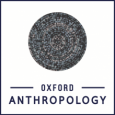Ladislav Holy made the distinction between representations, ideals, and behaviour central to his theoretical and methodological reflections. That distinction underlies many of the political and ecological problems that humankind faces today, including the problems currently faced by liberalism. Using an understanding of hierarchy derived from Louis Dumont, and ethnographic case studies of attempts to impart the ideals of liberalism around the world (including in eastern Europe), I argue for a liberalism that acknowledges the embeddedness of hierarchy in many contexts and that practises the anthropological virtues of empathy, scepticism, and tolerance of alternative views.



